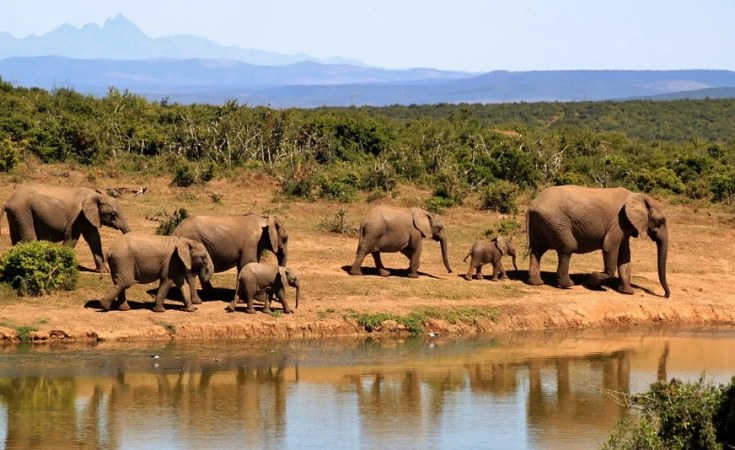People living near National Parks have been urged not to block wildlife corridors because they risk being injured or even killed by wild animals.
The situation also leads to destruction of properties and crops, according to Mr Joseph Mwalugelo, who is the Corridor Manager with the Southern Tanzania Elephant Programme (STEP) under USAID Tuhifadhi Maliasili Programme.
Mr Mwalugelo argued that the previous incidents of killings, injuring, destruction of properties and crops by the wild animals due to blocking corridors should serve as a lesson.
"Such incidents should serve as lessons to people so that they avoid blocking wildlife corridors, many lessons coming from elephants killings and devastating of properties since the animals are known to use the same corridors for generations," he said, recently.
He stated that since 2018 more than seven people have been killed in Kilombero Elephant Corridor and several were injured, as elephants forced their way through the blocked corridor.
The corridor links Udzungwa Mountains National Park and Nyerere National Park and elephants use them to cross from one side to another.
It is said that about 66 wildlife corridors have been blocked in the country. It has been lucky that donors have decided to compensate people who have been living on the corridors.
Mr Mwalugelo was speaking with journalists while at the field trip at Ifakara, Kilombero District, Morogoro region.
The group of journalists went to the field after they were taken through a master class in Bagamoto, Coast region, a few weeks ago.
The master class was coordinated by the Journalists' Environmental Association of Tanzania (JET) under the sponsorship of USAID Tuhifadhi Maliasili Project.
He revealed that in order to raise awareness, STEP started working with focus groups of between 15 and 20 people as well as with children, use local elephant monitoring teams to establish the movements of elephants, see how devices put to curb elephants from moving from the established corridor work, so as to make modifications when needed.
The expert said it is pertinent to put some elephants underpass that are about 30 metres wide with two spans of 15 metres width each and height of six metres as suitable for the site conditions on roads, to save elephants from being knocked down by vehicles.
JET Executive Director, Mr John Chikomo, underlined the importance of the wildlife corridors, calling on journalists to raise awareness among the people.
Mr Chikomo asked the public to evacuate the corridors and not to block any of them so that the wildlife could be sustained as well as people do their economic activities outside the corridors.
Wildlife corridors support natural processes that occur in a healthy environment, including the movement of species to find resources, such as food and water.
Mr Chikomo said corridors can contribute to the resilience of the landscape in a changing climate and help to reduce future greenhouse gas emissions by storing carbon in native vegetation. They can also support multiple land uses such as conservation, farming and forestry.


